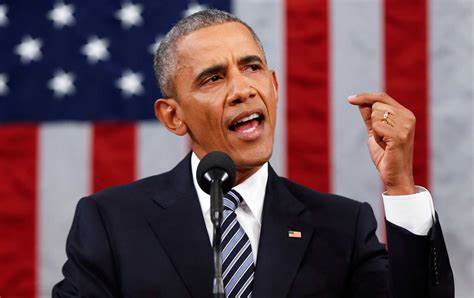This is the VOA Special English Education Report.
On Tuesday, the United States will hold congressional and state elections in a year defined by voter dissatisfaction. Democrats are trying hard to excite their party’s base of support in an effort to limit Republican gains.
That base includes young people. Two years ago, two-thirds of voters under thirty voted for Barack Obama. Now, the president is urging them to remember that excitement and his campaign for change. His efforts to reach young voters include appearances on MTV and “The Daily Show With Jon Stewart” along with college visits.
Recently he spoke to about thirty-five thousand people at Ohio State University.
BARACK OBAMA: “And now we are not just advocating change. We’re not just calling for change. We’re doing the hard work of change — we’re grinding it out. Sometimes it’s frustrating. We’re delivering change inch by inch, day by day. It’s not easy. Believe me, I know it’s not easy.”
Zach Howell, president of the College Republican National Committee, could have said the same thing two years ago. But he says this year is “completely different.” He says more young people are proudly identifying themselves as conservatives and as Republicans.
ZACH HOWELL: “It is all about the economy. That is everything to them. I mean, twenty percent of college graduates are unable to find work right now. So young people are concerned about their futures.”
Sixty percent of college students approved of the job President Obama was doing in May of last year. That number was down to forty-four percent in a recent Associated Press-mtvU survey.
Heather Smith is executive director of Rock the Vote. Her group tries to get young people to become politically active. She says schools need to provide more civics education and states need to continue their efforts to make voting easier.
More and more Americans vote early; some states even let people register and vote on the same day. But Ms. Smith says the voter registration process may be one reason why young people are less likely to vote.
HEATHER SMITH: “They are new to the process and that means that for the majority of them, they need to register to vote for the first time.”
But getting more people — especially young people — to vote is harder in years without a presidential election.
Young voters are getting a lot of attention. Yet the group AARP, which represents millions of older Americans, says candidates should keep something in mind. The group says two-thirds of voters this November could be age forty-five and older.
And that’s the VOA Special English Education Report. Join us online at WWW.VOA-STORY.COM and on Facebook, Twitter and YouTube at VOA Learning English. I’m Bob Doughty.
